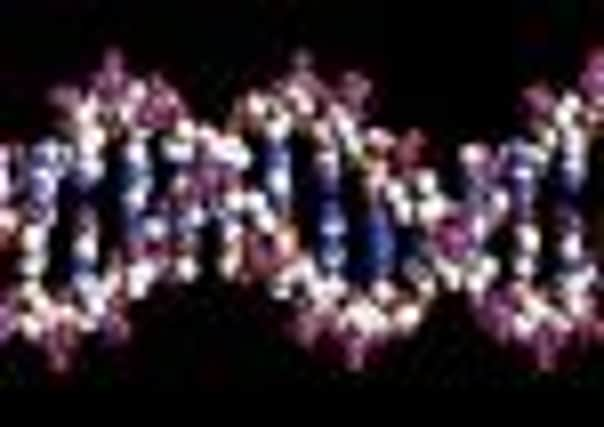There’s no junk DNA – it all has a purpose, say scientists


The findings, reported in some 30 research papers, show that about 80 per cent of the genetic code is actively involved in keeping life going.
Scientists hope the findings will lead to a deeper understanding of numerous diseases and help them devise more effective diagnostic tools and treatments.
Advertisement
Hide AdAdvertisement
Hide AdA team of more than 400 scientists from 32 laboratories around the world identified four million “switches” that determine whether genes are turned on or off.
Until recently, large amounts of the human genetic code, or genome, were dismissed as “junk” – DNA sequences that had no function.
Experts only began to realise that junk DNA might have a useful regulatory role in the 1990s. But even 10 years ago, when the Human Genome Project mapped the first definitive blueprint of the “book of life”, much of the genome was thought to be junk.
Now scientists know that almost every fragment of DNA has a purpose.
Speaking at the Science Museum in central London yesterday, Dr Ewan Birney, chief analysis co-ordinator on the Encyclopedia of DNA Elements project, known as Encode, said: “We’re going to find out ways of helping us understand disease, avoid disease, prevent disease and perhaps cure disease in different ways from this, but I’m not going to be able to put my finger on this disease or that disease right now.”
The scientist, who is also the associate director of the European Bioinformatics Institute in Hinxton, Cambridgeshire, said the new information should not only be appreciated by scientists and doctors, but by everyone who wants to understand how humans work.
“There are lots of different audiences we have. There are scientists that we want to pick up the data and use and run with it and do lots of different things, but also it’s part of this broader understanding, this century’s science, of understanding ourselves in detail.
“We’re all going to have to get used to knowing a lot more about ourselves and about how humans work so I think that it’s really useful and important that people come to places like the Science Museum here in London, but other places worldwide, to understand the science of genetics and epigenetics in more detail,” he said.
Advertisement
Hide AdAdvertisement
Hide AdNobel Prize-winning geneticist Sir Paul Nurse, president of the Royal Society, said the research for the first time established a database of non-coding DNA that scientists could use.
Speaking at the British Science Festival at the University of Aberdeen, he added: “You have a whole toolkit that can connect different genes and regulate them at different levels.”